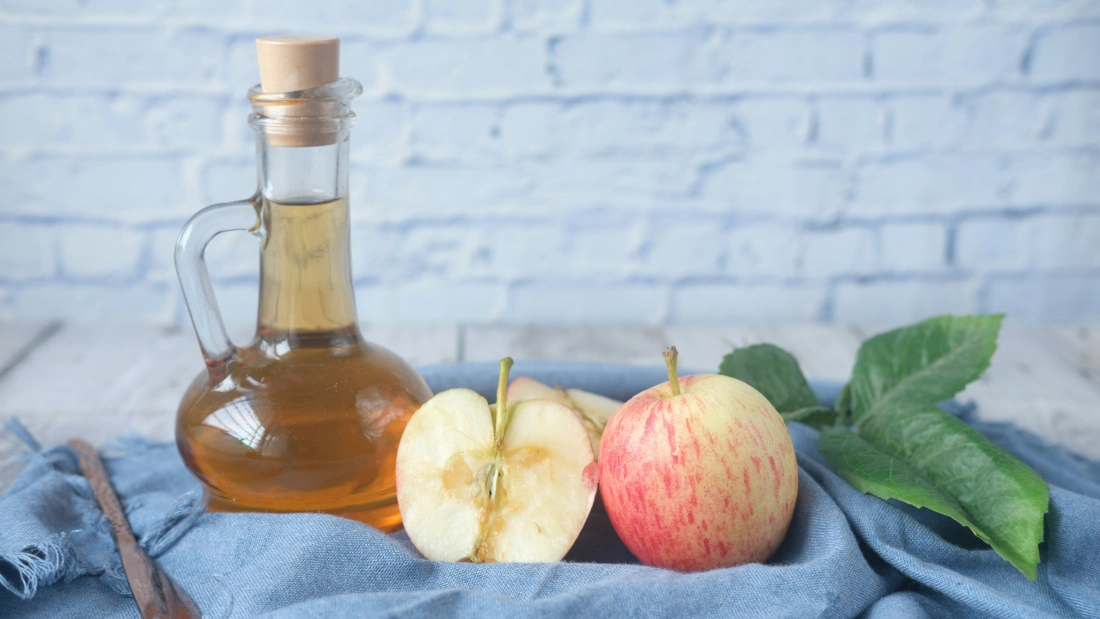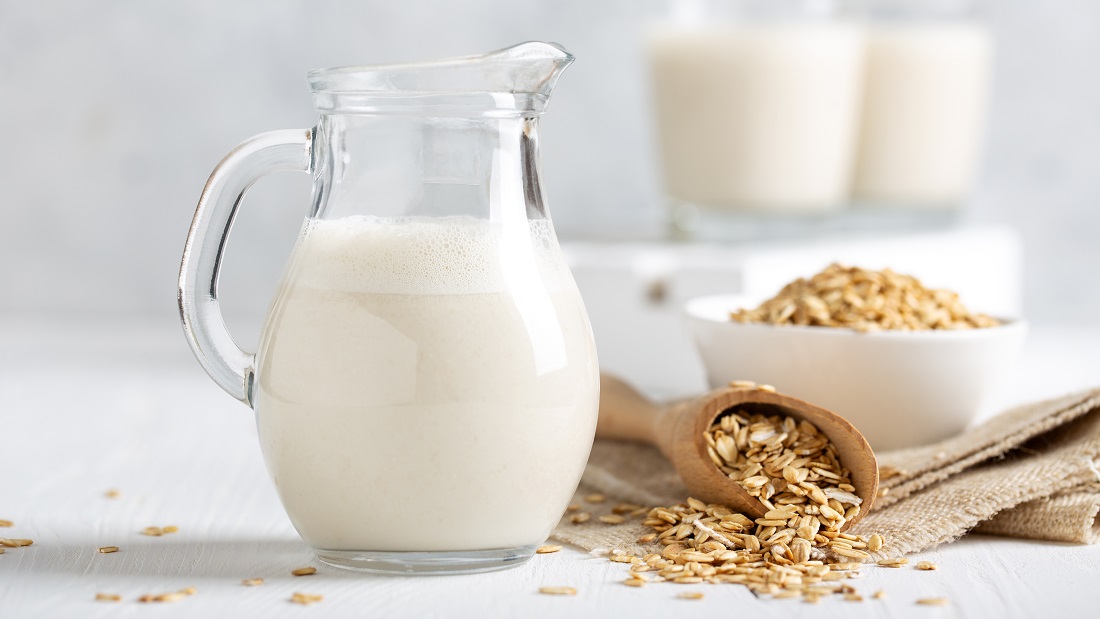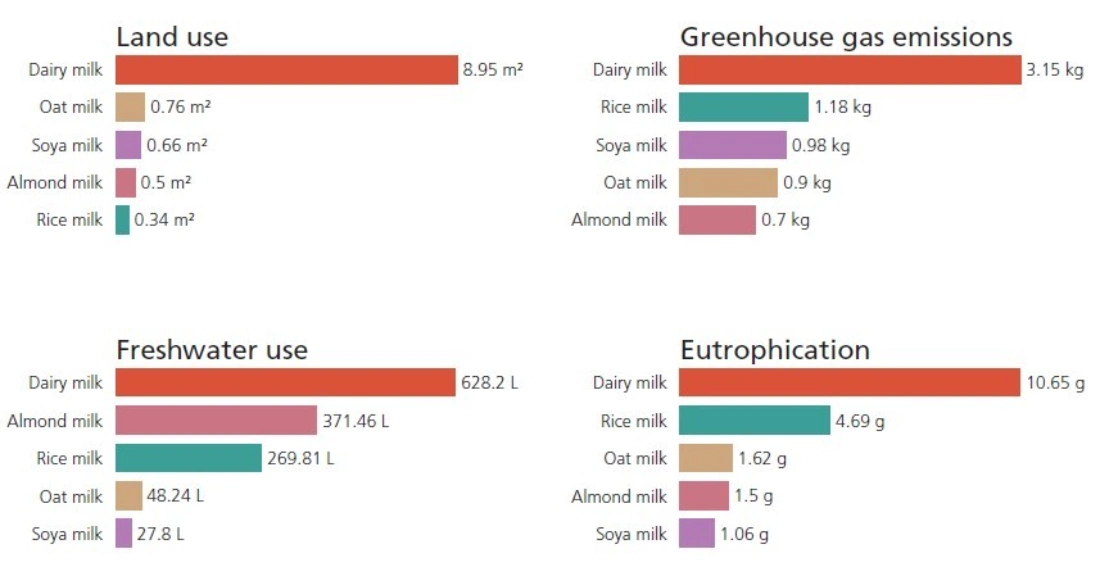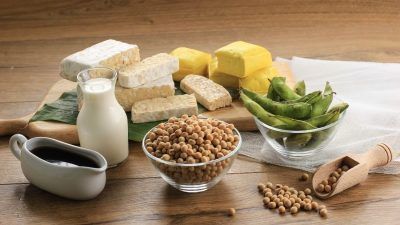12 misleading food claims debunked

If you believed all the contradictory headlines you’d never know what to eat. Tabloid newspapers are constantly spreading misinformation by sensationalising scientific findings and turning nuanced discoveries into simple scare stories. In addition to the traditional press, social media has made it easier than ever for anyone to build an audience and share their ideas with their followers. Unlike peer-reviewed scientific journals, a Youtube video or a tweet does not need the approval of experts in the field and as a result are often packed with misinformation. Here are 12 common food claims made in the media and what the science has to says:
1. A carnivore diet is a healthy option
The claim: removing all plant foods and carbs from the diet promotes a state of ketogenesis, reduces chronic inflammation and promotes good health.
The truth: there is no evidence that only eating meat and animal-based products is good for you in the long term. On the contrary, there is plenty to suggest that meat is bad for your health. If people were to follow a carnivore diet and have their health outcomes tracked over their lifetime, we would expect to see more cases of heart disease, cancer, type 2 diabetes and conditions such as gout than in those following a plant predominant diet.
The likely reason some people may feel better when they adopt a carnivore diet (or other low carb diets) is because it is essentially an elimination diet; they are removing the foods that may cause health issues if they suffer from some intolerances or allergies. However, what makes us feel good in the short term isn’t necessarily what’s best for us in the long term, and the idea of an elimination diet is that you slowly reintroduce most foods so you can still eat a balanced and varied diet with no compromise to your health.
2. Apple cider vinegar is the only medicine you need
The claim: apple cider vinegar (ACV) can cure diabetes, fight off infections, help you lose weight, lower your blood pressure and even cure cancer.
The truth: apple cider vinegar is the poster child for natural remedies and although it does have some potential health benefits, these have been at best overblown and at worst completely made up. There is some evidence that ACV may help manage blood-sugar levels and help reduce cholesterol, lower high blood pressure, aid with weight loss, and it does have some antibacterial properties. However, in most of these cases the research is limited and it doesn’t come without its downsides. For example, ACV’s high acidity can be bad for your teeth and cause acid reflux.
One of the main concerns when it comes to natural remedies is that people use them to replace proven treatments and protocols. ACV is safe for most people to consume but it should be viewed as a little extra on top of what you’re already doing. ACV shouldn’t be prioritised over a healthy lifestyle that includes a wholefood plant-based diet and regular exercise, but it can be used as a compliment… or should I say, condiment?
3. Plants are toxic
The claim: proponents of animal-based diets claim that plants have natural defence mechanisms to protect them from predators and the chemicals produced makes it dangerous for us to eat them.
The truth: it is true that plants produce certain chemicals to deter predators when they are damaged or stressed by environmental factors but it is not true they are bad for you – at least not in the plants we commonly consider safe to eat. In fact, these phytochemicals are one of the reasons plants are so good for us. For example, broccoli contains compounds such as glucosinolates and sulforaphane which play an important role in the plant’s defence system against herbivores and pathogens. When broccoli and other cruciferous vegetables are chopped and chewed they produce sulforaphane, a phytonutrient which has been linked to reduced risk of cancer, and improved brain and heart health. Another example is theobromine, the compound in chocolate that is toxic to dogs but which has antioxidant properties and may have other health benefits including mitigating age-related cognitive decline. Just think how miserable life would be if we didn’t eat chocolate because we thought it would do the same to us as it does to dogs!
4. Local food is always more sustainable
The claim: we should always eat food grown locally because the fewer miles it has to travel from farm to fork, the better it is for the environment.
The truth: if you want to eat sustainably you need to consider more than just food miles. Most of the environmental impact associated with food results from the amount of resources needed to produce it, rather than how far it has travelled. Dr Hannah Ritchie, Senior Researcher and Head of Research at Our World in Data, says that eating local is one of the “most misguided pieces of advice.” For most food products, greenhouse gas emissions from transportation form just a fraction of the total carbon footprint. Some people rationalise eating animals by claiming they only eat organic, grass-fed and local meat but as Dr Ritchie says, “eating local beef or lamb has many times the carbon footprint of most other foods… Whether you buy it from the farmer next door or from far away, it is not the location that makes the carbon footprint of your dinner large, but the fact that it is beef.”
5. A blood-glucose spike is bad
The claim: for optimal health, we should try to avoid blood-sugar spikes.
The truth: in the last couple of years wearing a continuous glucose monitor (CGM) has become all the rage amongst biohackers. What is a useful and essential tool for those with prediabetes or diabetes, has been gamified by those who probably don’t even need to wear one – and often don’t understand the data they are given by the device, or the ‘advice’ they are given by online influencers. Many have come to believe that the aim is to try and avoid any rises in blood-sugar – a belief that can lead to unhealthy eating patterns, such as entirely avoiding carbohydrates, and anxiety around food choices. It is a perfectly normal physiological response for our blood-glucose to rise after eating, and as long as we are capable of producing insulin, our sugar levels should return to normal within two hours. While we don’t want our blood-glucose to be continuously elevated, a natural, moderate rise after a meal is not a cause for concern for most people.
6. Oat milk is bad for our health
The claim: oat milk contains a lot of sugar and leads to a big glucose spike so should be avoided.
The truth: this misguided food claim is related to the previous one about blood-sugar. It assumes that all rises in blood-glucose are unhealthy, which is not true. In an article for Viva!, The vegan Doctor, Dr Rebecca Jones GP, sets the record straight about oat milk and concluded that:
“consuming a small amount of oat milk as part of a generally healthy, plant-based diet shouldn’t be too much of a concern to anybody, diabetic or not… rushing back to dairy isn’t likely to be the answer. If we’re considering just human health, we need to consider the fact that dairy milk has been associated with prostate cancer, and that full fat dairy is also rich in saturated fat, which is known to cause cardiovascular disease and has been linked with some cancers.”
If you’re still concerned about oat milk, soya milk is a much better alternative than cow’s milk. Or just use a variety of different plant-based milks, eg soya for tea and smoothies, almond for breakfast cereals and oat for coffee. There’s no rule saying you have to only use one type of plant-based milk for everything!

7. Soya messes with our hormones
The claim: soya contains the oestrogen-like hormones and can have feminising effects in men.
The truth: there’s no evidence that soya disrupts hormones in people but the scare stories have stuck. Soya isoflavones – plant hormones or phytoestrogens – can bind to oestrogen receptors in the body and cause either weak oestrogenic or anti-oestrogenic activity – slightly mimicking or inhibiting the effects of oestrogen. This means that they may, in fact, have a ‘normalising’ effect. However, they are considerably weaker than the animal oestrogen found in human and cow’s milk, which never seems to attract the same scrutiny. Unless you have a soya allergy, there is no need to avoid this extremely healthy food.
8. Lectins are killing us
The claim: lectins in grains and legumes are causing ‘leaky gut’ and autoimmune diseases.
The truth: there is no good evidence that people need to avoid plant-based foods containing lectins. The studies that show lectins are harmful to the gut are conducted by feeding animals (rats and pigs) raw, isolated lectins. Humans, however, cook beans before eating them, which deactivates and removes most of the lectins. Lectin-containing foods, such as beans and grains, are so good for our health that the benefits far outweigh any miniscule risk from a low dose of lectins. Lectins have also been shown to have antioxidant properties and they may also help to manage blood-sugar control. If you buy canned beans, they’ve already been cooked but if you buy dry beans, just make sure you soak and/or cook them thoroughly before eating. If they’re undercooked your chili non-carne is not going to taste very nice anyway!
9. Almond milk is bad for the environment
The claim: almond milk should be avoided because of the large amount of water required to produce almonds.
The truth: although almond milk takes more water to produce than soya, rice and oat milk, it has the lowest greenhouse gas emissions of them all. Almond milk also uses less land than many other milks. When compared to cow’s milk, almond milk is, by far, the more environmentally friendly option. Almond milk requires 74 litres of water for a single 200-millilitre glass, while this is considerably more than oat or soya milk, filling that same glass with cow’s milk would require 126 litres of water. If you want to avoid almond milk, go for soya or oat but cow’s milk is not the answer.

10. Plant protein is inferior to animal protein
The claim: plant protein is incomplete and less bioavailable than protein from animal-based foods so it is inferior.
The truth: based on the overwhelming and ever-growing body of evidence, there is no solid ground from which to argue that plant protein is inferior to animal protein. Plants contain all nine essential amino acids in varying quantities so you can meet your requirements by eating a variety of protein-rich plant foods. Some will still try to claim that plant protein is incomplete, of inferior quality and less bioavailable than meat and dairy but when it’s actually put to the test it performs just as well as any other source of protein.
Not only is plant protein just as effective as animal protein when it comes to building and maintaining muscle strength, but it is superior when you look beyond bulging biceps and consider disease prevention. A 2023 systematic review and meta-analysis is just one of many that found “a shift from animal-based to plant-based foods is beneficially associated with cardiometabolic health and all-cause mortality.”
11. Seed oils are the leading cause of chronic disease
The claim: seed oils are to blame for the epidemic of chronic disease because they are processed and cause inflammation.
The truth: online health influencers love to point to a single cause of all the world’s health ills, whether it’s glucose, lectins, or in this case, seed oils. You’ll hear them claim that seed oil is more suited to being used as rocket fuel than for food (and recommend beef tallow as an alternative, unaware that it, too, is often converted to biofuel). But whether seed oils are used as biofuel is irrelevant. What matters is the evidence. A systematic review of 42 clinical trials studying rapeseed (canola) oil found no significant effect of the oil on inflammation. The same study also found that people cooking with rapeseed oil actually have a lower risk of dying from cancer and respiratory disease and infection than those cooking with butter.
12. Carbs are bad
The claim: carbohydrates lead to weight gain, metabolic disease such as diabetes and poor cardiovascular health.
The truth: the first mistake many low-carbers make is lumping all carbs into the same basket instead of distinguishing between simple and complex carbohydrates.
Complex carbohydrates include starches and dietary fibre, which is a very important part of any diet. Fibre keeps our digestive system healthy, improves our energy metabolism (slows down sugar absorption), helps in healthy weight management, can reduce the risk of heart disease, some cancers, diabetes and encourages the ‘good’ bacteria in the gut. Simple carbohydrates often get vilified because they occur in many ultra-processed foods (UPFs) but they still have their place – especially if you need to fast-release energy during intense exercise. This is why white rice is recommended before a gym session or why marathon runners suck down a glucose gel to replenish their carbohydrate stores and avoid ‘hitting the wall’. Fruit is also a source of simple carbohydrate in the form of fructose (as well as complex carbohydrates and other nutrients) but it is one of the healthiest foods so there’s no need to limit its intake – in fact, most people need to eat more.
Ultimately, whether carbs are good or bad is a matter of context: eating a bag of vegan gummy bears during the course of a marathon is quite different from scoffing them while lounging in front of the TV. But, if your carbohydrates are coming from wholefood plant sources you probably don’t need to think twice before biting into that banana.
It can sometimes be hard to distinguish the difference between legitimate science and quackery, especially when peddlers of misinformation call themselves doctors and seem fluent in the language of nutrition. We should put our sceptic hats on whenever someone is attributing all of our ills or answers to just one food with unwavering certainty. They’ve often built a reputation around a certain claim and offer the answer to all your problems if you buy their book or their magic pill. Unfortunately, there is no silver bullet, the healthiest diet is a varied, vegan wholefood diet packed with fresh fruit and vegetables, wholegrains, pulses, nuts and seeds. Real nutrition science is often nuanced and meaningful research looks at new studies that fall within the entire body of scientific evidence – something that most tabloids fail to do almost every single time.







